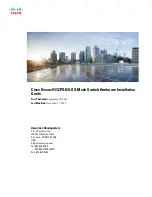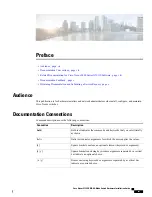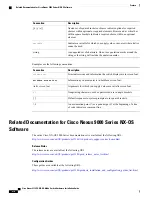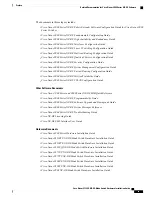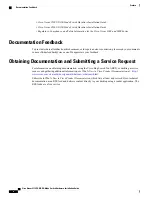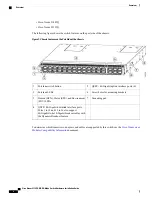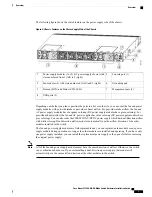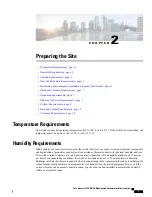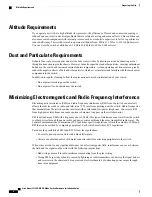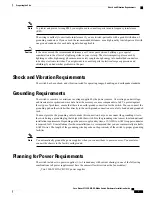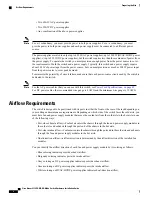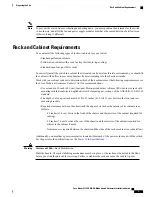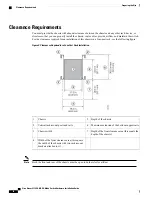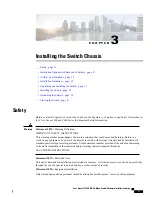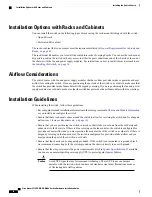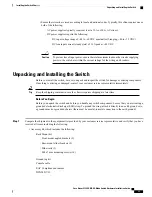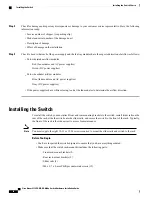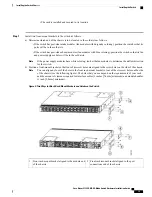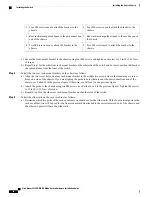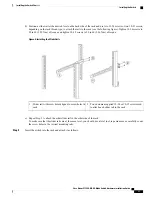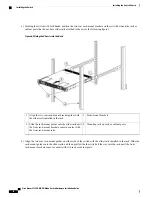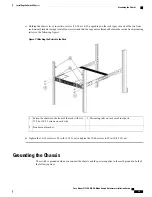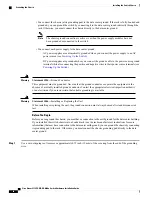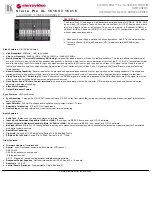
C H A P T E R
2
Preparing the Site
•
Temperature Requirements, page 5
•
•
•
Dust and Particulate Requirements, page 6
•
Minimizing Electromagnetic and Radio Frequency Interference, page 6
•
Shock and Vibration Requirements, page 7
•
Grounding Requirements, page 7
•
Planning for Power Requirements, page 7
•
•
Rack and Cabinet Requirements, page 9
•
Clearance Requirements, page 10
Temperature Requirements
The switch requires an operating temperature of 32 to 104° F (0 to 40° C). If the switch is not operating, the
temperature must be between
–
40 to 158° F (
–
40 to 70° C).
Humidity Requirements
High humidity can cause moisture to enter the switch. Moisture can cause corrosion of internal components
and degradation of properties such as electrical resistance, thermal conductivity, physical strength, and size.
The switch is rated to operate at 8 to 80 percent relative humidity, with a humidity gradation of 10 percent
per hour. For nonoperating conditions, the switch can withstand from 5 to 95 percent relative humidity.
Buildings in which the climate is controlled by air-conditioning in the warmer months and by heat during the
colder months usually maintain an acceptable level of humidity for the switch equipment. However, if the
switch is located in an unusually humid location, you should use a dehumidifier to maintain the humidity
within an acceptable range.
Cisco Nexus 9332PQ NX-OS-Mode Switch Hardware Installation Guide
5

